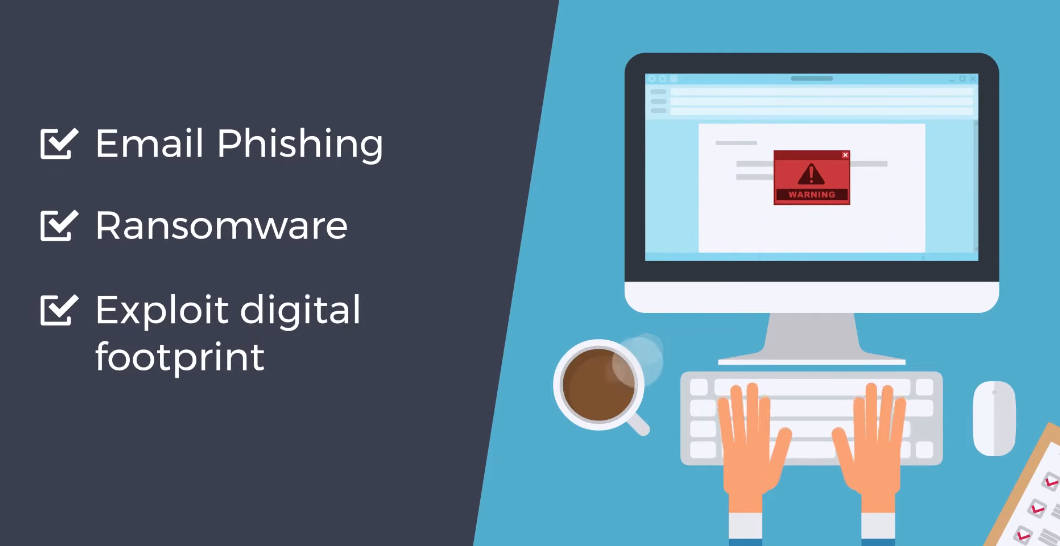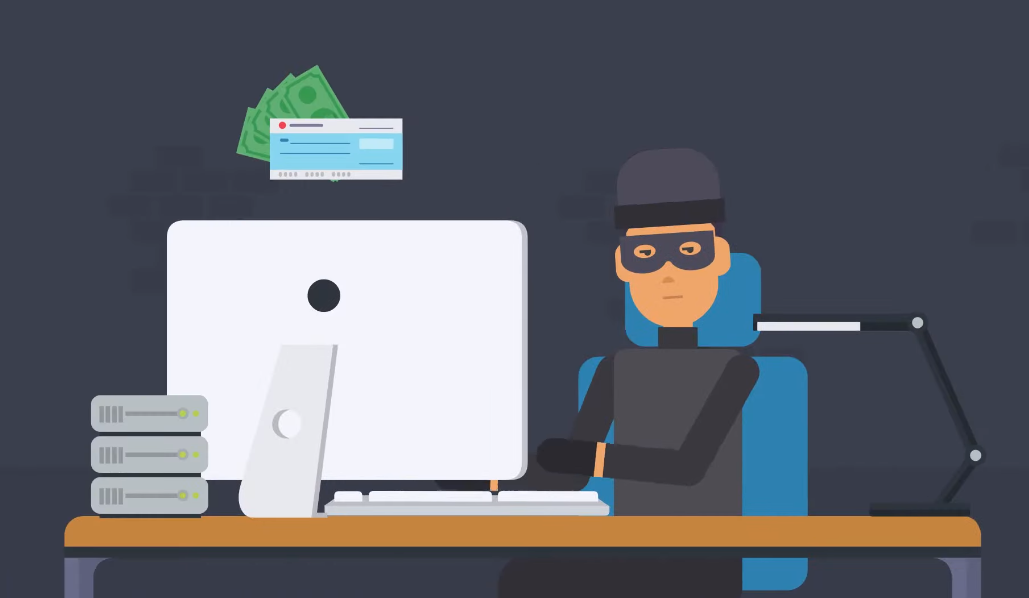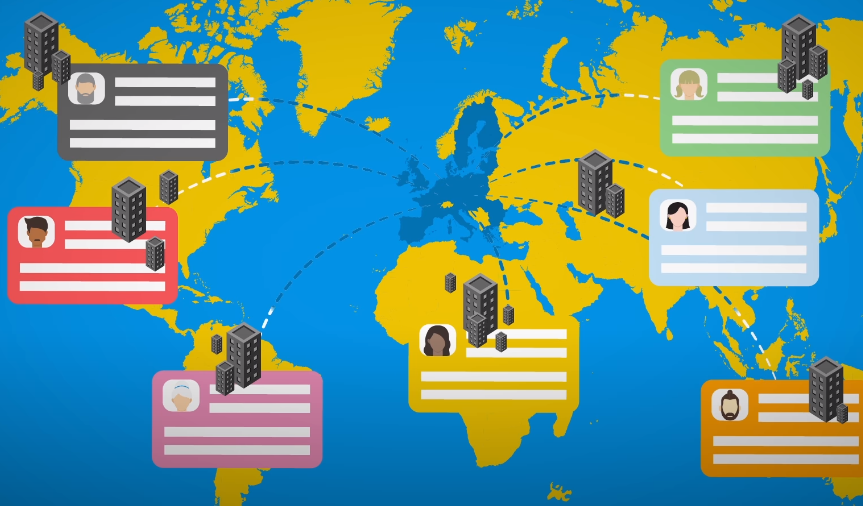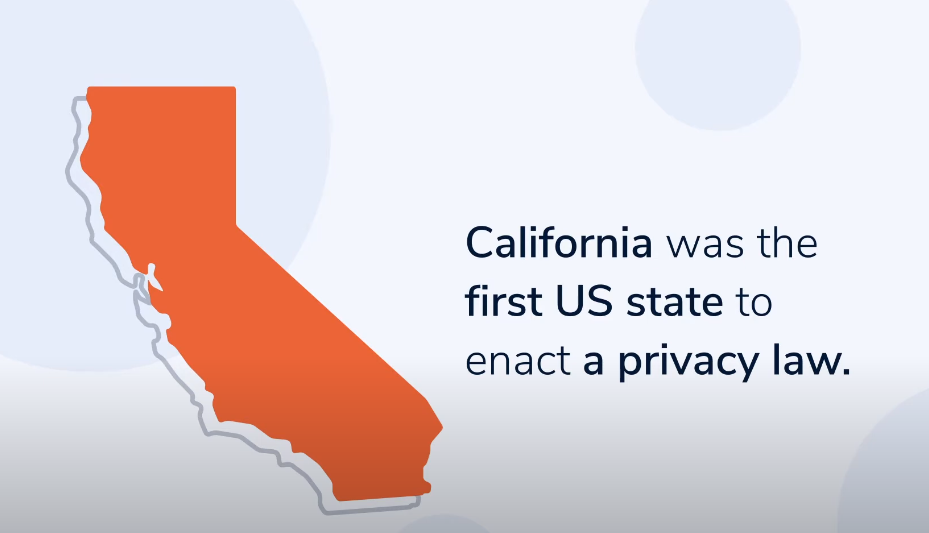Introduction
Definition Of PII

PII refers to Personally Identifiable Information and it is any data that can be used to identify, locate or contact an individual. This includes a person’s name, address, date of birth, social security number or any other unique identifier. PII is considered sensitive data because it can be used for identity theft or fraud if accessed by unauthorized persons.
The use of PII has become widespread in the digital age with the rise of social media and e-commerce platforms where individuals are required to provide their personal information when creating accounts. Organizations that collect PII from customers are required by law to protect this information from unauthorized access through various means such as encryption and access restrictions.
The Significance of PII In Data Privacy

In today’s digital age where personal information is constantly being collected and stored by organizations, it’s important to understand the significance of PII in data privacy.
Data breaches are becoming more common and sophisticated attackers can use PII for identity theft or financial fraud. It’s crucial for organizations to implement strong security measures to protect PII from unauthorized access or disclosure. Compliance with data protection laws such as GDPR and CCPA also requires organizations to ensure that they handle PII appropriately.
The Role Of PII In A Modern Data-Driven Society
PII plays a crucial role in enabling businesses and organizations to personalize their services, target their marketing efforts effectively, and improve customer experience. However, the collection and processing of PII also pose significant risks to personal privacy.
The use of PII in data analysis helps companies make better-informed decisions by gaining insights into consumer behaviour patterns. This is particularly true for industries such as finance, healthcare, and insurance where accurate predictions are essential. However, this also raises concerns about how this information is collected and used particularly when it comes to sensitive information such as medical records.
Types of PII
- Basic identification information: This includes a person’s name, address, phone number, email address, date of birth or social security number.
- Financial information: This includes bank account numbers, credit/debit card numbers or any other financial data that could be used for fraudulent activities.
- Medical information: Any details related to a person’s health condition such as medical history or test results come under this category.
- Biometric data: This refers to physical characteristics like fingerprints or facial recognition that can be used for identification purposes.
- Online activity data: Data stored by websites on users’ browsing habits which include IP addresses, cookies and keystroke patterns.
PII Regulations
General Data Protection Regulation (GDPR)

The aim of GDPR is to ensure that companies and organizations protect the personal data of individuals within the EU. GDPR seeks to provide control back to people over their personal data by ensuring that companies are transparent about how they collect and use it.
Under GDPR, sensitive personal data, also known as Personally Identifiable Information (PII), such as race, ethnicity, political opinions, religion or sexual orientation require special protection. Companies that process PII must have a legal basis for doing so and obtain explicit consent from individuals before collecting it.
California Consumer Privacy Act (CCPA)

The California Consumer Privacy Act (CCPA) is a landmark data privacy law that took effect on January 1, 2020. It gives California consumers the right to know what personal information businesses collect about them, request that their information be deleted, and opt out of having their data sold to third parties. The CCPA applies to businesses with annual gross revenues over $25 million or that sell personal information of at least 50,000 California residents annually.
The CCPA defines “personal information” broadly and includes categories such as name, address, IP address, geolocation data, biometric information, and browsing history. However, it also excludes certain types of data such as publicly available information and de-identified or aggregate consumer data. Companies subject to the CCPA must provide several notices to consumers regarding their rights under the law and have specific requirements for responding to consumer requests.
Health Insurance Portability and Accountability Act (HIPAA)
The Health Insurance Portability and Accountability Act (HIPAA) seeks to protect an individual’s privacy by ensuring that their PHI is kept confidential. Under this act, covered entities such as healthcare providers, health plans, and healthcare clearinghouses must comply with specific privacy and security standards when handling PHI.
In addition to protecting an individual’s privacy, HIPAA also gives them specific rights related to their PHI. These rights include the right to access their PHI, request corrections or additions to their medical records, and receive a notice of how their PHI will be used. HIPAA also requires covered entities to obtain written authorization before using or disclosing an individual’s PHI for purposes outside of treatment, payment or healthcare operations.
Children’s Online Privacy Protection Act (COPPA)
The Children’s Online Privacy Protection Act (COPPA) protect the privacy of children under the age of 13 who use online services, such as websites or mobile apps. The law requires operators of these services to obtain verifiable parental consent before collecting personal information from children.
COPPA applies not only to website operators but also to third-party service providers who collect personal information from children on behalf of website operators.
PII Best Practices
Encryption And Access Control
Encryption ensures that sensitive information remains confidential even in the event of unauthorized access. There are various encryption methods, including symmetric and asymmetric encryption, which involve the use of keys to encrypt and decrypt data.
Access control is another critical aspect of data privacy that involves limiting access to sensitive information only to authorized individuals or systems. Access control policies may incorporate user authentication, authorization, and auditing mechanisms to ensure accountability in accessing data. These policies may also involve the use of multi-factor authentication techniques such as biometrics or one-time passwords for added security.
Data Minimization And Deletion
Data minimization refers to the process of collecting and retaining only the minimum amount of personally identifiable information (PII) necessary for a specific purpose. This means that companies should not collect excessive data beyond what is required for their operations, as this increases the risk of data breaches and unauthorized access.
On the other hand, data deletion involves removing PII from databases or systems once it is no longer needed. This can be achieved through regular purging or destruction of old records, which can help reduce the chances of data misuse or unintentional disclosure.
Incident Response And Breach Notification
The incident response involves taking immediate action during a security incident or data breach. This includes identifying the cause of the incident, containing it, and minimizing its impact on potential victims. It also involves conducting an investigation to determine the extent of the damage caused by the incident.
Breach notification is equally important as it pertains to informing affected parties about any unauthorized access to their personal information. Organizations have a legal obligation to notify those impacted by a data breach within a specific timeline established by applicable laws and regulations.
Privacy Policies And User Consent
Creating a comprehensive privacy policy alone is not enough. It’s also essential to obtain user consent before collecting any personal information. Consent should be informed and explicit so that users understand what they are agreeing to when sharing their data with a company. User consent must be obtained for each specific use of personal information rather than one broad agreement for all purposes.
PII And Big Data
The use of PII in big data analytics can provide valuable insights for businesses and organizations. However, it also creates significant risks for individuals if proper safeguards are not put in place. Unauthorized access or misuse of PII can lead to identity theft and other forms of fraud.
To protect individuals’ privacy rights while still harnessing the power of big data analytics, organizations must implement robust security measures and ethical practices when handling PII. This includes obtaining explicit consent from individuals before collecting their information and implementing secure storage methods that limit access to only authorized personnel.
PII and Cybersecurity
Cybercriminals are constantly devising new and sophisticated ways to steal personal information from individuals and organizations alike. To protect PII from cyber threats, individuals and organizations must take proactive measures such as using strong passwords and two-factor authentication systems. Regularly updating software and conducting security audits can also help prevent breaches that could result in the loss of sensitive data. By prioritizing cybersecurity measures for the protection of PII, we can ensure that our personal information remains secure in this digital age.
PII In The Workplace
In the workplace context, PII includes employee information such as name, address, social security number, and date of birth. Other types of PII in the workplace include email addresses, phone numbers, job titles and descriptions.
Employers have a responsibility to protect their employees’ PII and must adhere to privacy laws such as the GDPR in Europe or HIPAA in the US healthcare industry. Failure to do so can result in severe consequences for both employers and employees alike. Employers should ensure that they have proper security measures in place to safeguard employee PII from cyber attacks or data breaches.
It’s also important for employees to be aware of how their PII is being handled by their employer. Employees should understand what types of information are being collected and why it’s necessary for their job function.
PII and Emerging Technologies
Emerging technologies such as artificial intelligence (AI) and the Internet of Things (IoT) have brought new challenges to protecting personally identifiable information (PII). AI algorithms require vast amounts of data to learn and make decisions, but this data can also contain PII that needs to be protected. The IoT, which involves the integration of everyday objects with internet connectivity, poses a risk as these objects may collect and transmit PII without users’ knowledge.
To protect PII in emerging technologies, companies need to implement privacy by design principles from the outset. This means incorporating privacy considerations into every aspect of product development and deployment, including data collection, storage, processing and sharing. Companies should conduct regular assessments to identify potential privacy risks in emerging technologies and employ appropriate safeguards such as encryption or anonymization. Additionally, they should educate employees on best practices for handling PII in these technologies.
PII And Social Media
When it comes to protecting personally identifiable information (PII), social media platforms pose a unique challenge. Social media users often share personal information on their profiles, which can put them at risk of identity theft and other cybercrimes.
One way social media companies protect PII is through privacy settings. Users have the ability to control who can see their profile and what information is visible. However, not all users are aware of these settings or how to properly use them. Additionally, there have been instances where social media companies have mishandled user data or sold it to third-party advertisers without consent.
PII And Consumer Rights
Consumers have the right to know what PII is being collected about them and how it is being used. They also have the right to request that their PII be deleted or not shared with third parties. This has led to increased transparency and accountability on the part of businesses when it comes to handling consumer data.
As more consumers become aware of their rights regarding PII, it is important for businesses to prioritize data privacy and ensure they are in compliance with regulations such as GDPR and CCPA. This includes implementing strong data protection measures and providing clear communication about how consumer data is being collected, stored, and used.
FAQs
What Are The Regulations Governing PII?
Different regulations have been put in place to govern how organizations collect and use PII. One such regulation is the General Data Protection Regulation (GDPR), which was implemented by the European Union in 2018. The GDPR applies to all organizations that process or handles PII belonging to EU citizens regardless of where the organization is located. It requires organizations to obtain explicit consent from individuals before collecting their data and imposes strict penalties for non-compliance.
In the US, there are several laws that regulate the collection and use of PII such as HIPAA for healthcare providers and FERPA for educational institutions. Additionally, states have enacted their own privacy laws such as CCPA in California and VCDPA in Virginia.
What Are The Ethical Implications Of PII In Big Data Analytics?
One of the biggest ethical concerns with PII in big data analytics is the potential for discrimination. If this information falls into the wrong hands or is used maliciously by those analyzing it, it could lead to unfair treatment based on race, gender, age and other sensory characteristics. This could result in a violation of human rights or even discrimination lawsuits.
Another issue with PII in big data analytics is the possibility of breaches leading to identity theft. When sensitive information like credit card numbers or social security numbers is involved, companies must take extra precautions when handling that information. A single breach can lead to severe consequences for consumers and companies alike.
What Are The Employee Rights And Legal Obligations Concerning PII?
Employee rights and legal obligations regarding PII (Personally Identifiable Information) refer to the measures taken by businesses to safeguard the personal data of their employees. Companies are bound by law to protect sensitive employee data, such as social security numbers, bank account details, and medical records. Employers must ensure that this information is collected legally and kept confidential.
Employees also have the right to access their personal data kept in company records under certain conditions stipulated by law. They can request corrections or deletion of any inaccurate information that may be held on them. Employers must inform employees on how their personal data is being used within the organization and obtain consent where necessary.
How Does Emerging Technology Impact PII Protection?
With the rise of new technologies such as artificial intelligence, machine learning, and blockchain, companies are now able to collect and store vast amounts of PII. While these technological advancements bring a wealth of benefits to businesses, they also pose a risk to consumers’ data privacy.
One major impact that emerging technology has on PII protection is the increased need for stronger security measures. As more sensitive information is collected by companies, there is a greater risk of cyber-attacks and data breaches. Consequently, businesses must prioritize robust security systems that can protect against these potential threats.
Another impact is the evolving regulations around PII protection. As technology advances at an unprecedented rate, governments worldwide have realized the importance of updating their laws and regulations to keep pace with new developments. For example, GDPR (General Data Protection Regulation) aims to ensure that individuals have control over their personal data in today’s digital age while holding businesses accountable for any misuse or mishandling of such information.
Conclusion
Understanding PII is crucial in protecting sensitive information and maintaining data privacy. It is essential to identify what constitutes PII in your organization’s context and establish measures to safeguard it. The use of encryption, strong passwords, and secure storage are some of the ways to protect PII effectively.
Moreover, organizations should be transparent about their data handling practices and obtain explicit consent from individuals before collecting or sharing their personal information. Compliance with relevant regulations such as GDPR, CCPA, and HIPAA helps avoid legal consequences that could harm an organization’s reputation.
